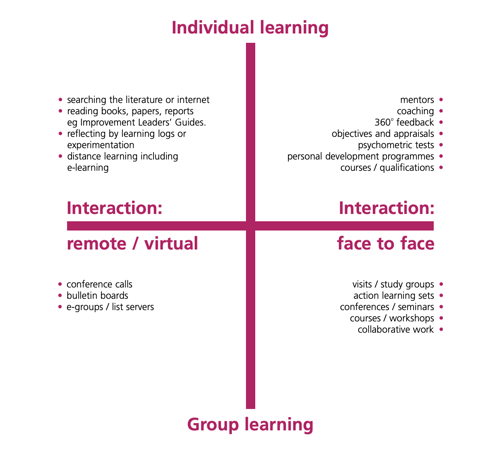The health and care sector is constantly evolving. From technological advancements to changing patient needs, the landscape demands adaptability and a commitment to continuous improvement. Providing exceptional care isn't just about technical expertise; it's also about cultivating a robust skillset that enables us to identify areas for improvement, implement effective solutions, and ultimately enhance patient outcomes.
So, what are the key improvement skills needed to thrive in this dynamic environment? Let's dive in!
Hard and soft skills for quality improvers
While there are many hard and soft skills that help you to be successful as a quality improvement professional, here are the most critical ones that you need.
Technical (hard) skills
- Data analysis and interpretation: Quality improvement professionals need to analyse data to identify trends, patterns, and areas for improvement.
- Quality improvement methods and tools: Skills in tools like Six Sigma, Lean, and root cause analysis are essential for designing and implementing changes.
- Improvement software: Familiarity with software like Excel or more advanced improvement platforms can be advantageous for running projects and programmes.
- Change management: The ability to manage change and innovation in a complex environment like a healthcare setting.
Technical (hard) skills
- Communication: Effectively communicating with stakeholders, including colleagues, management, and customers, is crucial for conveying ideas and driving change.
- Teamwork: Working collaboratively with diverse teams to achieve common goals is essential.
- Problem-solving: Identifying and addressing problems, developing solutions, and implementing changes effectively are vital.
- Organisational skills: The ability to plan, prioritise tasks, and manage time effectively to ensure project milestones are met.
- Adaptability: The ability to adjust to changing circumstances and embrace new technologies or processes is important.
- Interpersonal skills: Building rapport, fostering trust, and engaging effectively with others are all critical.
Now let’s analyse them a bit more in detail.
Data analysis and interpretation
Data is everywhere in healthcare, from patient records to performance metrics. The ability to analyse and interpret this data is crucial for identifying trends, measuring the impact of interventions, and making data-driven decisions.
How to improve these skills:
- Develop basic statistical knowledge: A solid understanding of descriptive statistics (mean, median, mode, standard deviation, ranges, percentiles) is essential. In addition, you have to learn how to determine statistical significance. There are many articles and videos available online to build a knowledge of the most important terms and use of statistics.
- Utilise data visualisation tools: Implementing data visualisation tools like dashboards can help you quickly identify patterns and trends. All-in-one QI platforms like Life QI have already integrated charting and reporting functionalities which can do the heavy lifting for you. However, you still need to understand how to interpret your data.
Read more on How to interpret an SPC chart.
Quality improvement methods and tools
As a QI professional, you need to have a strong understanding of QI tools like the Plan-Do-Study-Act (PDSA) cycle or SPC charts, and methodologies like the Model for Improvement, Lean or Six Sigma. You must be able to apply these methodologies and use these tools to identify, analyse, and solve problems, test and implement changes, and measure and monitor outcomes.
How to improve these skills:
- Formal training and certification:You can attend online or in-person courses and get certified in the various improvement methods. You can also enrol in smaller courses or workshops about individual improvement tools. At Life QI we also offer free live and on-demand webinars where you can learn more about the most important QI tools.
- Hands-on experience: Sometimes the best way of learning is by doing. By actively participating in QI projects, even in a supporting role, you can gain practical experience of the different methods and tools.
- Mentorship: You can also find an experienced QI professional to serve as a mentor, providing guidance and feedback on your application of QI methods and tools.
Quality improvement software
A strong understanding of quality improvement (QI) software solutions comes in handy for modern QI initiatives. These tools facilitate data collection, analysis, and visualisation, enabling teams to identify trends, track progress, and implement evidence-based interventions effectively. Proficiency in a QI software like Life QI streamlines the entire improvement process, from root cause analysis and process mapping to performance monitoring and reporting.
To enhance this skill, individuals can pursue targeted training courses on specific software platforms. Furthermore, actively participating in QI projects and experimenting with the software's features, alongside engaging in online communities and seeking mentorship from experienced users, will significantly improve competency and unlock the full potential of these powerful tools.
How to improve these skills:
- Training courses: Some software solutions like Life QI offer free live and/or on-demand webinars help users get started with the product and educate them on how to navigate the different areas of the platform. These are valuable resources that we highly recommend as this is the best way to learn how to use a new product.
- Help Centre articles: Many QI software have their own help centre with useful articles to guide their users through the creation of a project and use of their tools and features.
- Other online guides: Working with our customers, we also saw many healthcare organisations offering their own training program to educate their employees on how to use the QI software that the organisation decided to implement.
- Hands-on experience: Similarly to how you learn using QI tools, to be able to master skills in a QI software requires practical knowledge. By actively using the software and running your projects in the system, you can get a better understanding of how it can and should be used.
Change management
QI professionals have to be able to manage change and innovation in a complex and dynamic environment. You have to understand what drives change readiness, you have to manage resistance and facilitate adoption. Furthermore, if you are a QI leader, you must actively engage and empower your teams and stakeholders, fostering their participation and commitment to the process. A leader is instrumental in nurturing a culture that embraces innovation and continuous learning, encouraging the generation, testing, and dissemination of new ideas.
How to improve these skills:
- Master change management frameworks: You can gain proficiency in:
-
- Understand the reason behind the resistance to change: Recognise the common reasons why people resist to change and develop strategies to address these concerns.
- Build strong communication and interpersonal skills: With effective communication you can address concerns, build consensus, and foster a shared understanding of the change vision. You have to build your ability to listen empathetically, articulate the benefits of change clearly, and tailor your communication style to different audiences. Read more on this below.
- Cultivate stakeholder engagement strategies: Through personal development you can learn how to identify key stakeholders, understand their perspectives, and involve them in the change process from the outset.
- Empower colleagues: Especially for QI leaders, it’s essential to find techniques to involve and engage their teams in the change process to foster ownership and commitment.
Communication and teamwork
Effective communication is paramount in a multidisciplinary healthcare setting. Communicating clearly with your team members, stakeholders, patients and families is crucial for building trust, ensuring patient safety, and achieving shared goals.
How to improve these skills:
- Practice active listening: You should start by trying to understand other people’s perspectives, concerns and challenges, even if you don’t necessarily agree with them. You should always focus on who you talk to, so pay attention to both verbal and non-verbal cues to understand perspectives fully.
- Use a clear and concise language: When communicating (whether it’s verbal or written communication), try to avoid jargon and technical terms that the people who you’re communicating with might not understand. Instead, use a simple but structured way of communication and tailor your message to who you speak to.
- Practice public speaking and presentation skills: You can take a public speaking course, or practice with colleagues in order to improve these skills. Learn also how you can present your data or complex concepts in a clear, easy-to-understand way through charts or visuals.
- Teamwork and conflict resolution: Quality improvement is a team sport, so be ready to help and support others if needed and share your knowledge and expertise with your colleagues in order to collaborate towards your goals. It’s also useful to learn conflict resolution techniques and focus on finding mutually beneficial solutions.
Problem-solving and critical thinking
Beyond simply reacting to symptoms, as a QI professional you also need to be able to analyse complex situations, identify root causes of problems, and develop effective solutions. Critical thinking allows you to challenge assumptions, evaluate evidence, and make informed decisions.
How to improve these skills:
- Practice root cause analysis: Implement techniques like the "5 Whys" or fishbone diagrams to drill down to the fundamental cause of an issue.
- Learn to be objective: Brainstorm and research solutions to solutions to develop a diverse set of options. Then, use criteria like feasibility, cost-effectiveness, impact, and alignment with organisational goals to assess the merits of each potential solution.
- Seek diverse perspectives: Collaboration with colleagues and stakeholders and actively seeking their perspective can help you to gain a comprehensive understanding of the issue and it can bring valuable insights.
- Develop strong analytical skills: Break down complex problems into smaller, manageable components. Use logic and reasoning to identify patterns, relationships, and inconsistencies.
Organisational skills
Developing organisational skills is also a must for a quality improvement professional. The ability to plan projects, prioritise tasks based on their impact on quality metrics, and manage time effectively is crucial for ensuring project milestones are met and improvement initiatives are successfully implemented.
How to improve these skills:
- Learn some methodologies: Familiarise yourself with approaches like Lean, Six Sigma, and Agile.
- Develop time management skills: Learn how to prioritise tasks, set realistic deadlines, and track progress effectively by using tools like the Eisenhower matrix to focus on high-priority tasks. You can also implement a software solution to track progress and deadlines.
- Practice risk management: Identify potential challenges and develop mitigation strategies to ensure project success.
Adaptability
Quality improvement is a field which constantly evolves with new methodologies, technologies, and organisational priorities. As a successful professional, you must be able to quickly learn and integrate these changes, while also tailoring their approach to the specific context of each project. Without adaptability and the integration of innovation you risk having ineffective solutions which lead to lower patient satisfaction and waste of money. The ability to navigate ambiguity, adjust strategies based on real-time data, and collaborate effectively with diverse teams, all driven by a flexible mindset, ensures that the quality improvement efforts remain relevant, impactful, and sustainable.
How to improve these skills:
- Embrace continuous learning: Stay updated on the latest quality improvement methodologies, technologies, and industry trends through journals, conferences, and online courses.
- Seek diverse experiences: Actively participate in projects across different departments or organisations to broaden your exposure to varied processes and perspectives.
- Experiment and reflect: Don't be afraid to try new approaches and tools; regularly evaluate the effectiveness of your strategies and adjust accordingly based on results and feedback.
- Network and collaborate: Build relationships with professionals from diverse backgrounds and organisations to foster knowledge sharing and gain new perspectives. You can also learn from other organisations in Life QI - in our community space you can find projects shared by other others.
Interpersonal skills
Interpersonal skills are the last on our list but it’s definitely not the less important one. Beyond technical expertise in data analysis and the knowledge of the QI tools, the ability to effectively communicate, collaborate, and influence stakeholders is paramount. You must be adept at building trust, navigating resistance, and fostering a shared understanding of goals and solutions across your teams. Without strong interpersonal skills, even the best improvement plans can falter due to poor buy-in, miscommunication, or an inability to facilitate constructive dialogue.
How to improve these skills:
- Active listening:Practice truly hearing and understanding others' perspectives before formulating a response. Summarise their points to ensure comprehension.
- Empathy development:Cultivate the ability to recognise and understand other people’s emotions, fostering a connection and building trust.
- Conflict resolution training:Learn techniques for managing disagreements constructively, finding common ground, and facilitating win-win solutions.
- Communication skills workshops:Focus on clear, concise written and verbal communication, including adapting your style to different audiences.
- Emotional Intelligence (EQ) training: Enhance self-awareness, self-regulation, motivation, empathy, and social skills to better navigate interpersonal dynamics.
Finding skill gaps and developing new skills
As highlighed, to be a successful improver, you have to identify where you need development. Once you know which skills you want to develop, you need to think about how you can learn them.
Learning a new skill is very personal so think carefully about the best way for you. Do you like and need face-to-face interaction? Do you like to be by yourself, or do you like to be in a group? The below image will help you find the possible options you have whatever your answer is to the above questions.

Figure 1: Learning methodologies (source: NHS England: Improvement knowledge and skills)
Investing in yourself and your team
Developing these improvement skills is an investment in yourself, your team, and ultimately, your patients. By embracing a culture of continuous improvement, we can create a healthcare system that is safer, more effective, and more responsive to the needs of those we serve.
What improvement skills do you find most valuable in your role?




